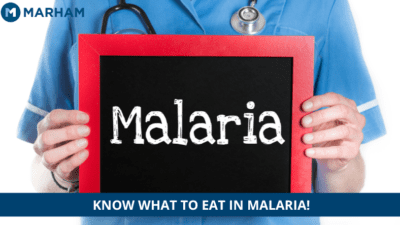Malaria is a common concept that follows that of monsoons. It is a protozoal illness that impairs immunity.
This occurs as a result of the extensive usage of antibiotics in the disease’s treatment. Chills are the first sign of malaria, which is followed by fever, headache, diarrhoea, vomiting, etc.
Female Anopheline mosquitoes, which transmit high-grade fever, are responsible for its transmission. From one sick individual to another, this mosquito spreads the disease’s parasite.
Red blood cells become infected by the parasite once it enters the bloodstream.
We will talk about What Food to Avoid in Malaria? Because people are dealing with a tremendous catastrophe these days.
Foods to Avoid in Malaria
Here’s the list of food that you need to avoid when having malaria according to experts;
- Steer clear of foods containing a lot of fiber, such as whole grain cereals, fruits with thick skin, and green leafy vegetables.
- Always stay away from fatty foods like fries, chips, pastries, anything containing a lot of cheese, maida-based cuisine, etc.
- Don’t consume anything that is especially spicy or hot.
- It will cause unneeded heartburn and stomach issues. A patient with malaria shouldn’t consume any sauces or pickles at all.
- Steer clear of caffeine-containing drinks like coffee, tea, chocolate, coke, and others.
- It’s crucial to counteract vitamin loss by consuming electrolytes.
- Consuming fruit juices, dal water, coconut water, etc., or eating soups and stews are important.
- Foods high in vitamin C and A, such as papaya, beets, and other citrus foods, along with vitamin B complex, are crucial for a person with malaria.
Discuss with a malaria expert to get the best treatment for Malaria
Diet for Malaria Patients
The diet for malaria patients should include the following:
- Eat Nutritious Foods
- Go ‘Nuts’ over ‘Seeds’
- Increase Fluid Intake
- Increase Protein Intake
- Eat Fat in Moderation
Tip; Apply mosquito repellent with DEET (diethyltoluamide) to exposed skin.
Consult a Nutritionist for a Detailed Diet Plan
There is no specific diet for treating malaria, but it is important to have enough nutrition so that the body can fight the illness.
A malaria diet should focus on boosting the immune system while protecting the digestive system, kidneys, and liver from damage.
A malaria sufferer should consume several smaller meals throughout the day.
For more details, you should consult a nutritionist right now.
Can’t Find the App?
| Android | IOS |
|---|---|
  |
  |
FAQ’s
Can you take milk while on malaria drugs?
This medication needs to be consumed with food or liquids (eg, milk, infant formula, pudding, porridge, or broth). This will facilitate the drug’s absorption by your body. If you or your child has trouble swallowing the pill whole, you can crush it and blend it with one or two teaspoons of water in a clean container.
Which fruit is best for malaria?
When treating malaria, fructose is crucial. Fruits are a quick source of energy. Ripe papaya, sweet lime, grapes, berries, lemon, orange, kiwi, melon, and pineapple, which are high in vitamin C, purify the body and help prevent sickness.
Can lemon stop malaria?
As evidenced by the parasite suppression of 39% when compared to the negative infected control, lemon decoction exhibits some antimalarial action. Lemons by themselves are ineffective as a treatment; instead, they appear to worsen the anemia that mice with malaria infections experience.

